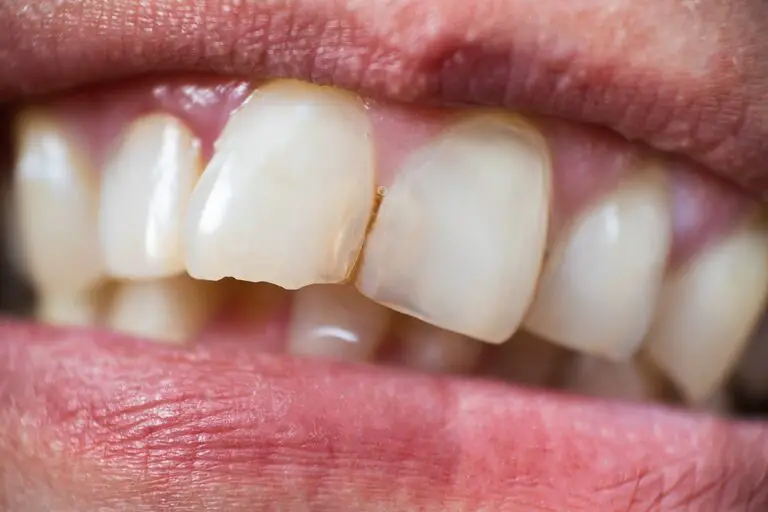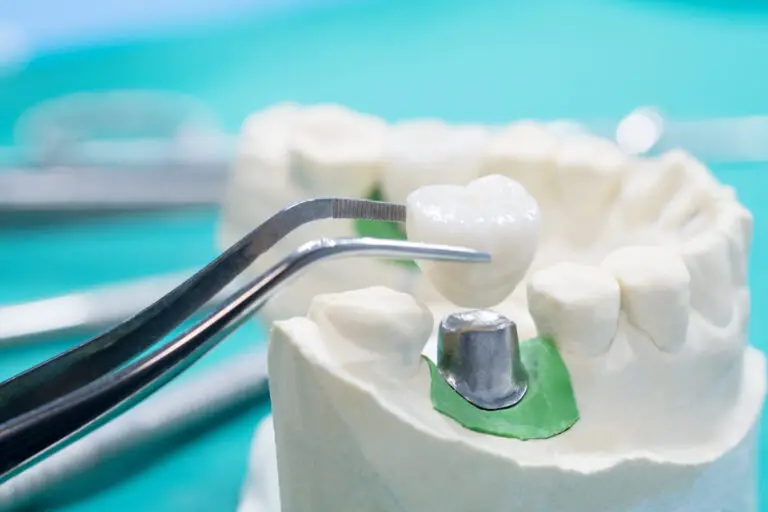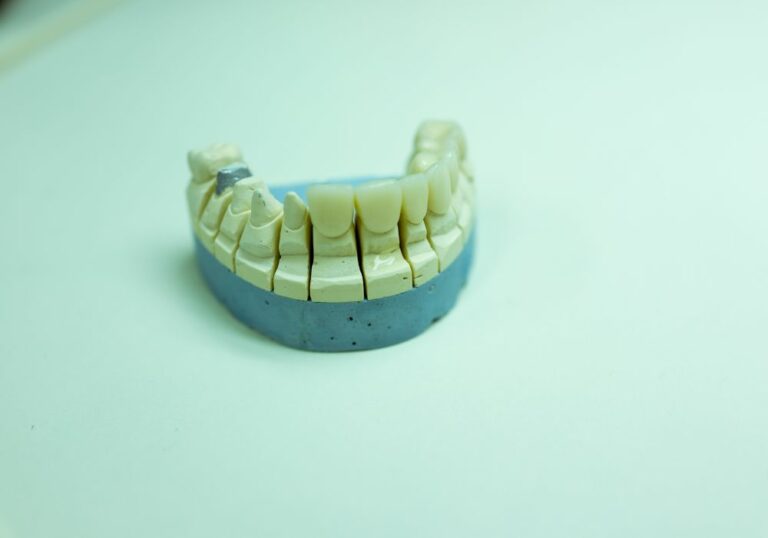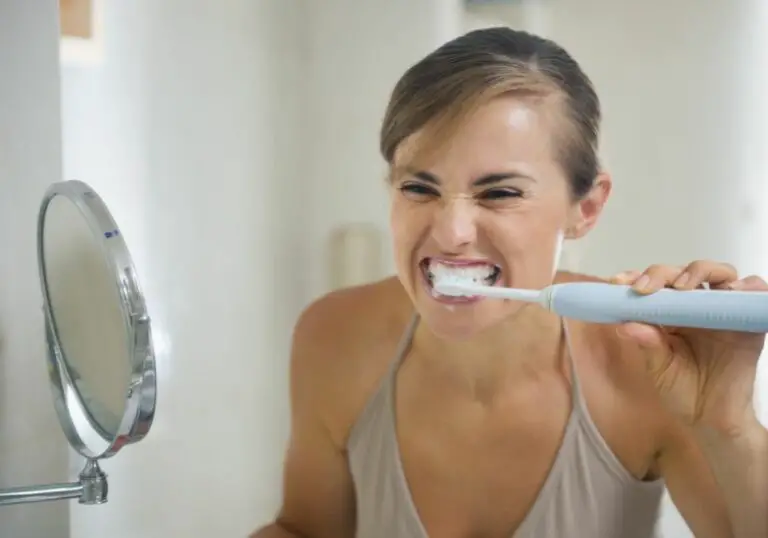Do you often feel self-conscious about the yellow tint on your teeth? Are you wondering if it’s possible to remove it? The answer is yes, you can remove the yellow on your teeth. There are several methods available to whiten your teeth and restore your confidence in your smile.
One of the most common causes of yellow teeth is the accumulation of plaque and tartar. Brushing and flossing alone may not be enough to remove these stains. However, there are several home remedies you can try, such as using baking soda and hydrogen peroxide, to help remove the yellow stains. Additionally, there are professional teeth whitening treatments available that can provide more significant and longer-lasting results.
It’s important to note that some causes of yellow teeth may require more extensive treatment. For example, if your teeth are discolored due to a medical condition or medication, it may be necessary to seek professional dental help. In this article, we will explore the causes of yellow teeth and the various treatments available to help you achieve a brighter, whiter smile.
Understanding Tooth Discoloration
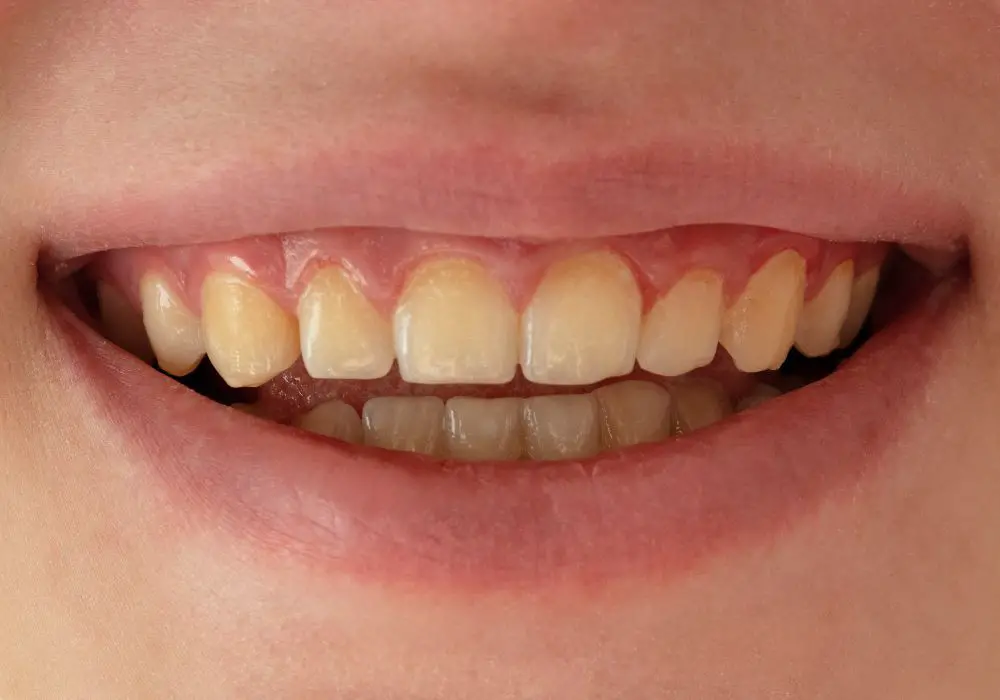
If you’re wondering why your teeth are yellow, you’re not alone. Tooth discoloration is a common problem that affects many people. Understanding the causes and types of tooth stains can help you find the best way to remove them.
Causes of Yellow Teeth
There are many reasons why your teeth may be yellow. Here are some of the most common causes:
- Aging: As you get older, the enamel on your teeth starts to wear away, revealing the yellow dentin underneath.
- Genetics: Some people are born with thicker enamel, which can make their teeth appear whiter. Others may inherit genes that make their teeth more prone to staining.
- Food and drinks: Certain foods and drinks, such as coffee, tea, red wine, and berries, can stain your teeth over time.
- Tobacco: Smoking or using other tobacco products can cause yellowing of the teeth.
- Poor oral hygiene: If you don’t brush and floss regularly, plaque and tartar can build up on your teeth, causing them to look yellow.
- Medications: Some medications, such as tetracycline and doxycycline, can cause yellowing of the teeth.
Types of Tooth Stains
There are two main types of tooth stains: extrinsic and intrinsic.
- Extrinsic stains: These are stains that occur on the surface of the enamel. They are usually caused by food, drinks, or tobacco. Extrinsic stains can often be removed with regular brushing and professional cleanings.
- Intrinsic stains: These are stains that occur inside the tooth. They are usually caused by trauma, aging, or medications. Intrinsic stains can be more difficult to remove and may require professional whitening treatments or veneers.
It’s important to note that some tooth discoloration may be natural and not a cause for concern. However, if you’re unhappy with the appearance of your teeth, there are many safe and effective ways to whiten them.
Professional Teeth Whitening
If you’re looking for a quick and effective way to remove yellow stains from your teeth, professional teeth whitening might be the solution for you. Here are two common types of professional teeth whitening:
In-Office Whitening
In-office whitening is a fast and effective way to remove deep stains from your teeth. During an in-office whitening treatment, a dental professional will apply a bleaching agent to your teeth and use a special light to activate the whitening process. This method can be the most efficient way to whiten discolored teeth, but it can also be the most expensive course of action.
Take-Home Whitening Kits
Take-home whitening kits are another option for professional teeth whitening. Your dentist will provide you with a custom-made tray that fits over your teeth. You’ll fill the tray with a bleaching gel and wear it for a specified amount of time each day. This method can take longer than in-office whitening, but it is often more affordable.
It’s important to note that professional teeth whitening may not be suitable for everyone. If you have sensitive teeth or gum disease, it’s important to talk to your dentist before undergoing any whitening treatment. Additionally, professional teeth whitening may not be effective for certain types of stains, such as those caused by medication or trauma.
Overall, professional teeth whitening can be a great option for those looking to quickly and effectively remove yellow stains from their teeth. Talk to your dentist to determine which method of professional teeth whitening is right for you.
At-Home Teeth Whitening Methods
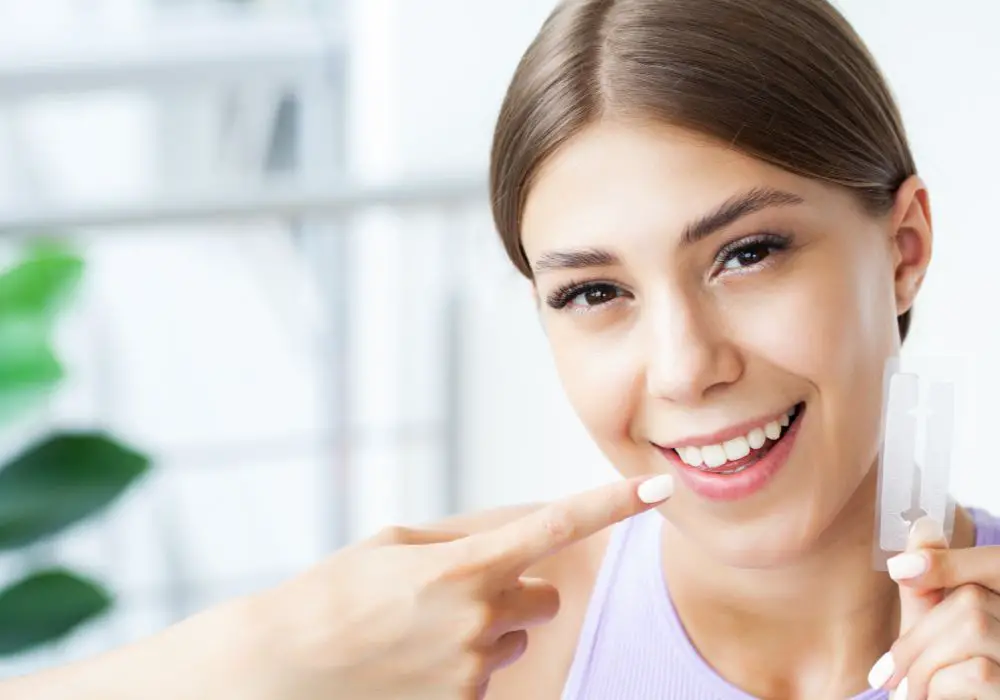
If you’re looking to brighten your smile, there are several at-home teeth whitening methods you can try. Here are some options to consider:
Whitening Toothpastes
Whitening toothpastes are a popular choice for those looking to remove surface stains from their teeth. These toothpastes contain abrasive particles that help scrub away stains, as well as chemicals like hydrogen peroxide that can help whiten teeth over time. Keep in mind that while whitening toothpastes can be effective, they may not produce dramatic results and should not be used as a substitute for professional teeth whitening.
Whitening Strips
Whitening strips are another popular at-home teeth whitening option. These thin, flexible plastic strips are coated with a whitening gel and are applied directly to the teeth. They are typically worn for 30 minutes to an hour each day for several weeks. Whitening strips can be effective at removing surface stains and lightening the overall shade of your teeth. However, they may cause sensitivity or gum irritation in some people.
Natural Remedies
If you prefer a more natural approach to teeth whitening, there are several remedies you can try at home. Baking soda and hydrogen peroxide can be combined to create a paste that can help remove surface stains from teeth. Additionally, eating crunchy fruits and vegetables like apples and carrots can help scrub away plaque and surface stains. Keep in mind that while natural remedies can be effective, they may not produce dramatic results and should not be used as a substitute for professional teeth whitening.
Overall, there are several at-home teeth whitening methods you can try to help brighten your smile. However, it’s important to remember that these methods may not produce dramatic results and should not be used as a substitute for professional teeth whitening. If you’re looking for more significant results, consider consulting with your dentist about professional teeth whitening options.
Preventing Yellow Teeth
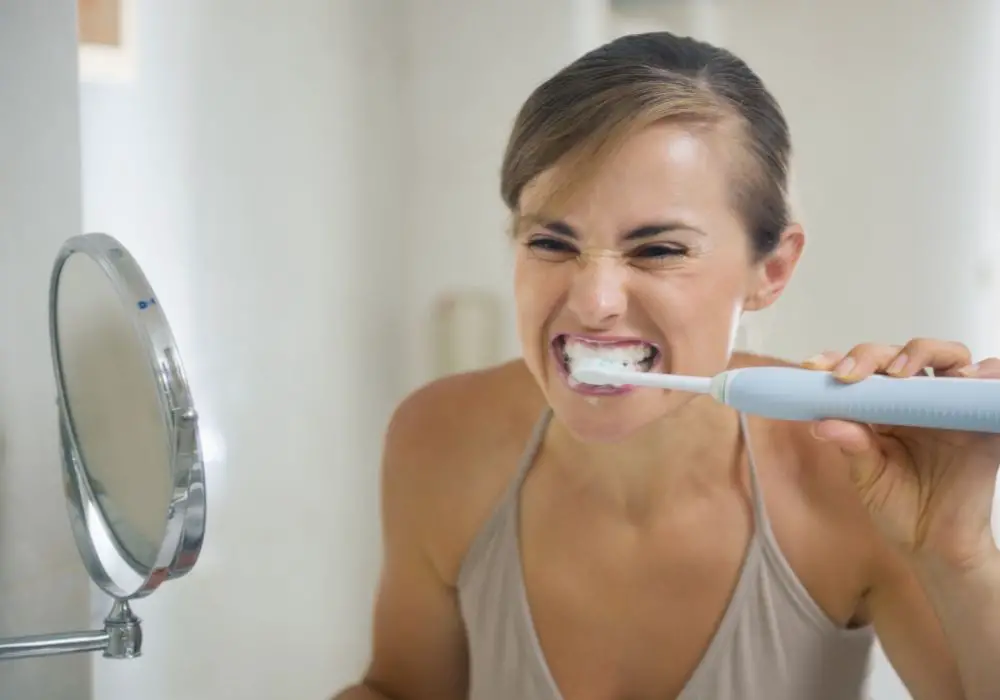
If you want to keep your teeth white and bright, there are a few things you can do to prevent yellowing. Here are some tips to help you maintain a healthy, white smile.
Oral Hygiene Practices
One of the most important things you can do to prevent yellow teeth is to practice good oral hygiene. This means brushing your teeth twice a day with a fluoride toothpaste and flossing at least once a day. Here are some other tips to keep in mind:
- Use a soft-bristled toothbrush to avoid damaging your tooth enamel.
- Brush your teeth for at least two minutes each time.
- Don’t forget to brush your tongue to remove bacteria and freshen your breath.
- Consider using an electric toothbrush, which can be more effective at removing plaque.
- Use mouthwash to kill bacteria and freshen your breath.
Diet and Lifestyle Changes
Your diet and lifestyle can also play a role in the color of your teeth. Here are some changes you can make to prevent yellowing:
- Avoid foods and drinks that can stain your teeth, such as coffee, tea, red wine, and dark-colored berries.
- Drink plenty of water to rinse away food particles and bacteria.
- Quit smoking or using other tobacco products, which can cause yellowing and other oral health problems.
- Limit your intake of sugary and acidic foods, which can weaken your tooth enamel and make your teeth more susceptible to staining.
By following these tips, you can help keep your teeth white and healthy. Remember to visit your dentist regularly for cleanings and checkups, and don’t hesitate to ask for advice on how to maintain a bright smile.
Frequently Asked Questions
What causes teeth to turn yellow?
There are several factors that can cause teeth to turn yellow, including age, genetics, poor oral hygiene, certain medications, and consuming certain foods and drinks such as coffee, tea, and red wine. Smoking and tobacco use can also cause yellowing of teeth.
How can I whiten my teeth at home?
There are several home remedies you can try to whiten your teeth, such as brushing with baking soda and hydrogen peroxide, using whitening toothpaste, oil pulling, and eating crunchy fruits and vegetables. However, it’s important to note that these remedies may not be as effective as professional treatments and may take longer to see results.
Is it possible to remove yellow stains from teeth?
Yes, it is possible to remove yellow stains from teeth. Professional teeth whitening treatments, such as in-office bleaching or take-home trays, can effectively remove yellow stains and improve the overall appearance of your teeth. However, it’s important to consult with your dentist to determine the best treatment option for you.
How do I get rid of yellow discoloration on my teeth?
To get rid of yellow discoloration on your teeth, you may need to undergo professional teeth whitening treatments. Your dentist may recommend in-office bleaching or take-home trays. Additionally, maintaining good oral hygiene habits, such as brushing twice a day and flossing daily, can help prevent further discoloration.
Are yellow teeth stains permanent?
Yellow teeth stains may not be permanent, but they can be difficult to remove without professional treatment. It’s important to address yellow stains as soon as possible to prevent them from becoming more severe and potentially requiring more invasive treatments.
What are some natural ways to whiten teeth?
Some natural ways to whiten teeth include brushing with baking soda and hydrogen peroxide, using apple cider vinegar as a mouthwash, eating crunchy fruits and vegetables, and oil pulling with coconut oil. However, it’s important to note that these remedies may not be as effective as professional treatments and may take longer to see results.

